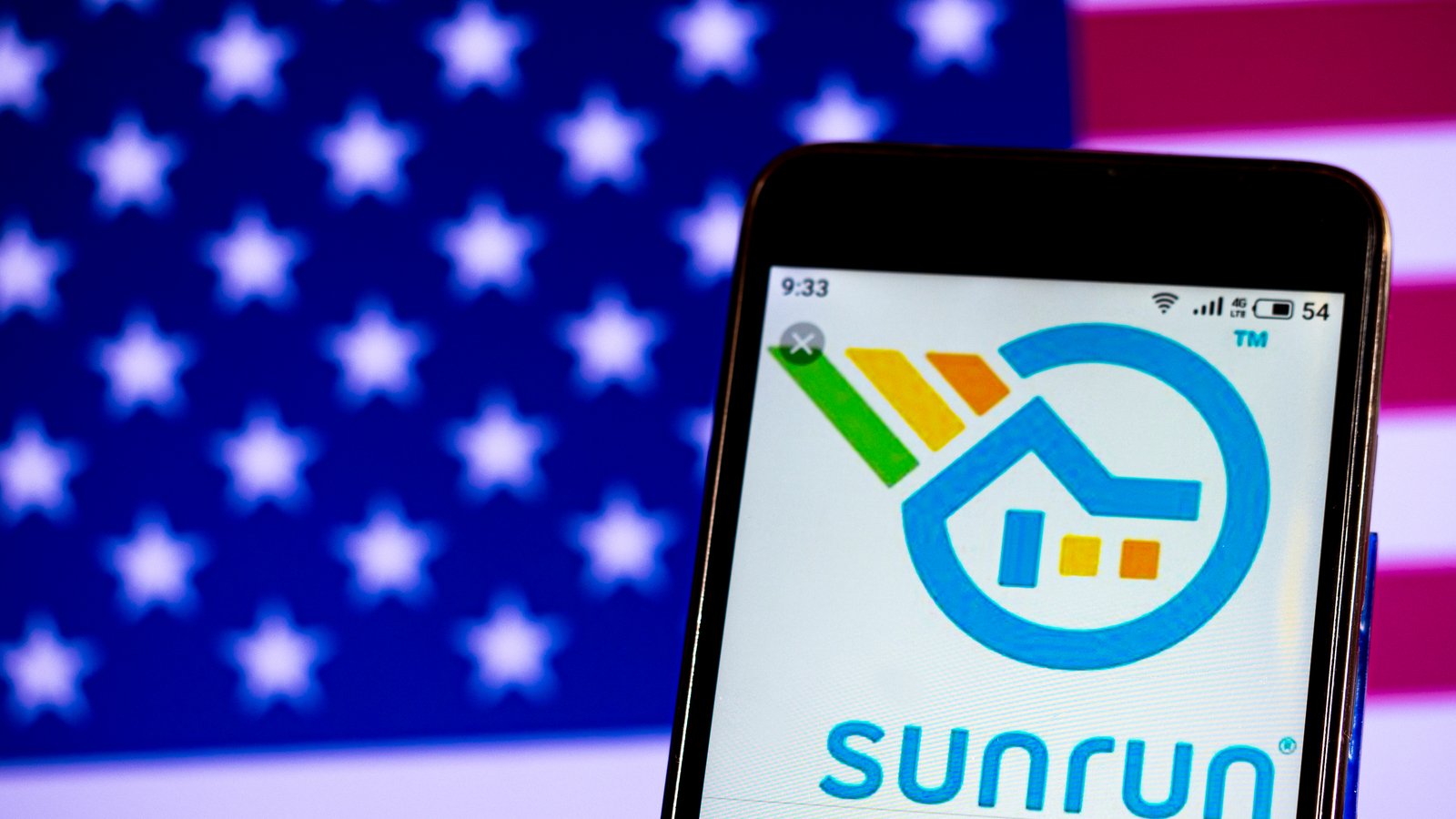Sunrun (NASDAQ:RUN) has been a jaw-dropping trade lately. Even after a recent sell-off, RUN stock is up 350% year-to-date. Sounds great, right?

Normally, you’d expect some huge fundamental developments to justify a stock price quadrupling. But there aren’t any here. Sunrun’s sales are actually declining. For Q2, its operating loss was wider than expected, its volumes dropped by a third, and costs per watt rose 12% (whereas, ideally, that figure is supposed to go down). In fact, Sunrun is shaping up to have another bad year — hardly anything unusual for this chronically unprofitable solar power installation company.
So why is Sunrun seeing an exponential stock price rise even as its core business loses ground? Traders are all excited for the presidential election. In theory, Joe Biden winning is supposed to unleash a golden era for solar companies. In fact, no such thing will happen. If anything, Sunrun is heading for even bigger problems in 2022, regardless of who wins.
Sunrun’s Reason For Existence Is About To End
The home solar installation industry has always struggled with profitability. There’s no competitive moat, margins are razor-thin, and the vendors tend to have to rely on door-to-door sales and other unsavory tactics to get business. And Sunrun built its business model on a shaky foundation: heavily-subsidized solar panels. However, given the underwhelming results from this program, Congress has allowed it to phase out, the level of subsidy has been dropping gradually in recent years.
And now, the subsidies are set to the end in 2022. Don’t believe me? Read this:
“Homeowners that are considering installing rooftop solar panels on their home will see little tax benefit to do so, especially after the ITC [investment tax credit] steps down again in 2021 to an even lower 22% credit. By 2022, the Federal Solar Tax Credit will only be available for commercial installations at a rate of 10%. That means that homeowners will not see a tax benefit for rooftop installation at all by 2022.”
In less than two years now, it’s game over for the tax break that made Sunrun’s industry popular. Recall that the ITC subsidies that have been in place since the Bush Administration enacted them in 2005. Contrary to popular belief, Republicans have also backed the solar industry.
In any case, the government threw tons of money at the industry and yet major players like SolarCity and SunEdison collapsed nonetheless. Now, Congress is set to remove that lifeline entirely.
Sunrun’s Financial Results Are Utterly Horrendous
Residential solar installation is a marginal industry with no moat and terrible returns on capital. Just look at Sunrun’s financial results over the past few years. When you do, you’ll see a sea of red. Not only does the company lose money, lately, it hasn’t even generated much in the way of positive EBITDA. The company has averaged a return on invested capital of less than 1% over the past decade. Give Sunrun $100 to invest and it returns less than a dollar of profit, on average. Good tech companies, by contrast, tend to earn 15% or more.
There’s also the negative 187% free cash flow margin. Even if Sunrun were profitable on an accounting basis (which it’s not) Sunrun is spending $3 installing panels for every dollar of cash it gets back. That’s with the taxpayers currently paying for this boondoggle as well. It will get even crazier once the federal government stops subsidizing this madness.
Sunrun And A Potential Biden Presidency
As bad as they are, let’s put Sunrun’s fundamentals aside for a minute. Clearly, much of move in RUN stock has been thanks to optimism about the upcoming election. In that regard, it doesn’t matter how Sunrun’s operations go as long as Biden gets elected and the federal money keeps flowing, right?
For one, it’s worth considering that the tax subsidy that made residential solar possible came from George W. Bush, not Barack Obama. That said, let’s suppose Biden is indeed a plus for solar. Before you get too excited, however, ask yourself: “Who will be the marginal buyer of solar stocks after the election?”
For a comparison, think back to 2016. What was Trump’s favorite talking point on energy? Clean coal. Trump’s messaging on bring coal back was inescapable.
Yet, if you look at the VanEck Vectors Coal ETF (NYSEARCA:KOL), there was no post-election bump for coal. Coal stocks did run up in the spring and summer of 2016, as Trump secured the Republican Party nomination. However, coal peaked at the end of October 2016 and flat-lined thereafter. Thus, if history rhymes, the rally in solar might be over by the time Biden potentially wins next month.
RUN Stock Verdict
Perhaps a Biden administration is willing to extend the existing subsidies rather than letting them phase out altogether. But with Sunrun stock up 350% in a few months, you need way more than just the status quo out of Biden to justify anything close to what’s happened with RUN stock already.
If you have a Manhattan Project for clean energy, the focal point isn’t going to be residential rooftop solar. That’s already been tried and found lacking. If solar gets a Biden boost, it will be innovative companies like First Solar (NASDAQ:FSLR), not some low-margin commodity installer like Sunrun.
In any case, given how telegraphed the run in clean energy has been already, I suspect you’ll see a sell-the-news reaction in November, even assuming Biden wins. Thus, I’d be cautious with solar stocks in general. And I’d run as fast as I could from ones that don’t have a viable business model. Sunrun was only barely profitable in 2016-17 and has already slid into negative territory by late 2018. This while it is still getting a 26% subsidy for panels from the government.
Those giveaways end entirely in 2022. Sunrun currently has a negative 7% profit margin. What happens next when you lose a 26% subsidy and you’re already well into the red as is? Consider that RUN stock was at $15 in January. And its business prospects haven’t gotten any better since then. Thus, $65 is an absurd price for Sunrun.
On the date of publication, Ian Bezek did not have (either directly or indirectly) any positions in the securities mentioned in this article.
Ian Bezek has written more than 1,000 articles for InvestorPlace.com and Seeking Alpha. He also worked as a Junior Analyst for Kerrisdale Capital, a $300 million New York City-based hedge fund. You can reach him on Twitter at @irbezek.
